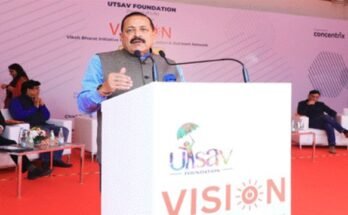New Delhi : A study conducted by ASSOCHAM, in association with Tata Institute of Social Sciences (TISS), suggests that in an effort to realign the skill ecosystem in India, the Union Government should take core elements of skill development from various ministries and pool them under a single minister with a budget of about Rs. 25,000 crore.
The study, titled ‘Skills development in India-An overview,’ also highlighted an urgent need to realign the skill ecosystem in the country to ensure quality, scalability and sustainability, more so as it is estimated that only 2.3 percent of the workforce in India has undergone formal skills training as compared to 52 percent in USA, 68 percent in the UK, 75 percent in Germany, 80 percent in Japan and 96 percent in South Korea.
Despite establishment of a dedicated ministry, many skill development schemes still remain with respective ministries with Union Skill Development and Entrepreneurship Ministry merely being the coordinator, the study noted.
The country is facing a paradoxical situation, where on the one hand, young men and women with higher education entering the labour market are looking for jobs, and on the other hand, industries are complaining of the unavailability of appropriately-skilled manpower.
Though India has the advantage of a higher population of youth, which can be cultivated to build a skilled workforce in the near future, the numbers to be trained are very large and can be achieved only if we try to overcome the various issues and challenges that impede progress, such as demand and supply mismatch, employer’s buy in, scalability, inadequate skill training facilities, mismatch between youth aspirations and jobs available, lack of good quality trainers and so on.
Skills development is vital for India’s sustainable economic growth. As such, there is a need to work on many fronts – introduction of vocational courses at the secondary school level, making work experience a compulsory component of any skill training, giving incentives to industries for accepting apprentices for work experience, enacting a law to facilitate skill development at a faster pace, re-skilling programmes for the existing workforce and efforts to upgrade our skill training comparable to international standards.
The need of the hour is to synergies the efforts and resources to provide a feasible platform for vocational education and skills development. The ideal way forward will be to seek partnerships that will strengthen the process of quality and inclusive education, said the study.
It further said that care should be taken to develop vocational education models that are sustainable, scalable and cost effective.
Note: News shared for public awareness with reference from the information provided at online news portals.



